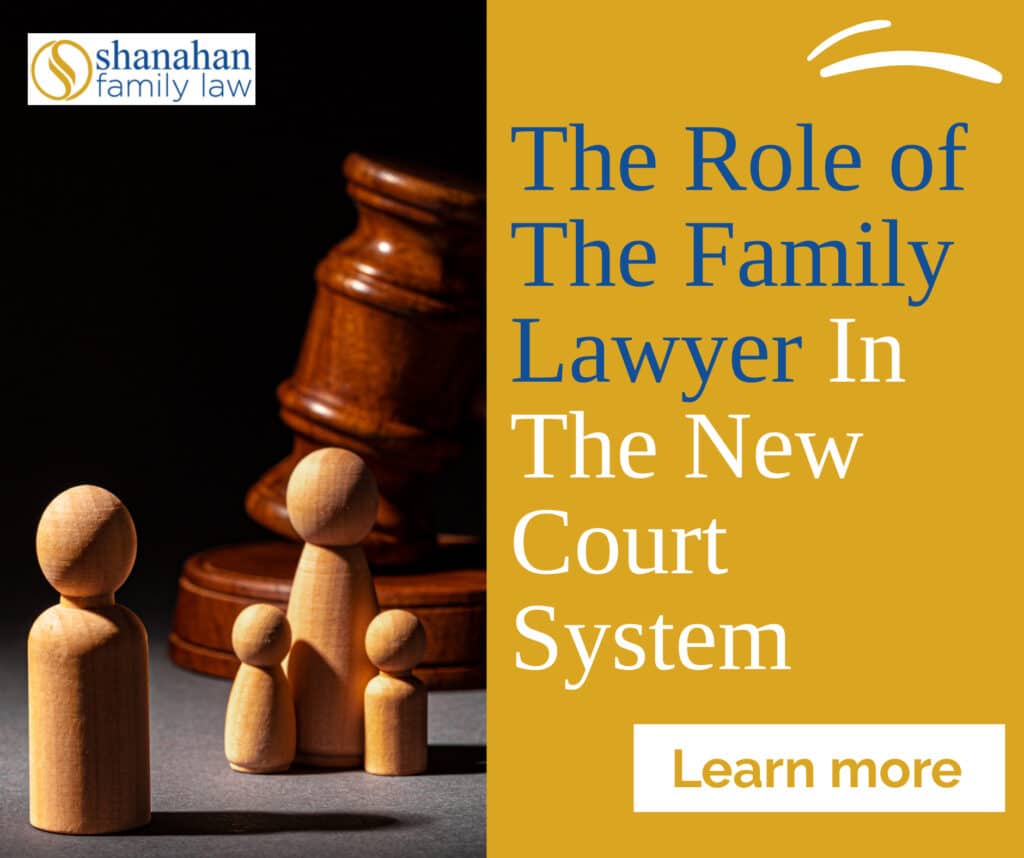The adversarial nature of the legal system, as outlined in the Family Court Act, is not always the best approach for family law matters. Some disputes are unresolvable and require the Family Court to intervene.
However, mediation is a powerful tool to help avoid much of the emotional turmoil associated with legal issues. Cases involving children, in particular, benefit significantly from prioritising dispute resolution.
Keeping family law matters out of the Court benefits all parties. But it also has implications for the role of family lawyers. There is a concerted effort in the family law sphere to reorient the focus from court action to a mediation-centric approach.
What is the role of a family lawyer in this new paradigm?
Key takeaways
- Before merging, the Federal Circuit Court would hear most family law cases,

while the Family Court would hear more complex issues. - The two Courts’ jurisdictions often overlapped and caused confusion, delays and inconsistencies.
- The Courts merged on 1 September 2021, separating each Court’s responsibilities into two divisions.
- The merger makes the court process faster and simpler.
- The new court system prioritises mediation over litigation.
- Family lawyers must acclimatise to the new processes.
- Family lawyers must walk clients through mediation opportunities and help with applications.
- The Lighthouse Project assists high-risk parties through appropriate case management.
- Family lawyers should advise clients on the importance of Lighthouse Project risk assessments.
The old system
Before September 2021, two separate courts presided over family law issues: The Federal Circuit Court of Australia and the Family Court of Australia.
The Federal Circuit Court (FCC) heard most family law cases, including all divorce applications. Typically, a family law matter would pass through the FCC first, and if it were too complex, it would pass to the Family Court.
Factors determining whether the Family Court would hear a case included:
- The difficulty of the case’s legal, factual or jurisdictional issues;
- Whether there were international issues such as international child abduction;
- Whether there were numerous parties or expert witnesses involved;
- In financial proceedings, whether there were:
- Tricky asset structures, valuations or taxation implications;
- Bankruptcy or insolvency.
The Courts’ jurisdiction overlapped but operated separately and had different application mechanisms. Some applicants needed help deciding which Court to file with. This created confusion, inconsistencies, unnecessary expenses and delays.
Family matters involving children could take up to 18 months for a case to reach trial. In that time, a child’s circumstances could change dramatically, leaving them in doubt about their future.
Unifying the Courts
On 1 September 2021, the courts combined to make the Federal Circuit and Family Court of Australia. The combined Court has two divisions that mimic the previous division of responsibilities. Division 1 maintains the duties of the Family Court of Australia. Division 2 carries on the work of the Federal Circuit Court of Australia.
This combined structure has a single entry point for all family law cases and one set of application forms. The change is designed to smooth and clarify the process. Online filing can take place through the Commonwealth Courts Portal.
The new system would speed up the legal process, aiming to resolve 90% of cases within a year of their filing.
New case management
The change also radically reconsiders the best pathway to resolution. The legal system is daunting for families who want to move on with their lives.
Dispute resolution is required before parties can apply for court orders without the other party’s agreement. Matters not resolved through mediation will proceed to Court earlier. The system will identify opportunities to use mediation as an alternative to court action where safe.
The Court should hear a case within six to eight weeks of filing, and parties should pursue dispute resolution within six months. This new approach aims to prevent up to 90% of cases from reaching final court action.
The new role of family lawyers
Historically, family law processes focused on litigation as the primary way to resolve matters. With this new method of prioritising dispute resolution, family lawyers must reorient their approach. The emphasis now on family law proceedings is taking all available opportunities for mediation. Litigation in Court is no longer the primary focus of family law professionals.
The court reforms have shown advantages and disadvantages. One drawback of the new system is the increased number of documents required for a court order application. For example, filing a parenting or financial questionnaire to initiate proceedings. These forms often provide information already contained in other documents. In this new regime, family lawyers must ensure clients organise their information concisely but thoroughly.
On the positive side, the reforms benefit vulnerable parties in high-risk cases. The Lighthouse Project pilot program’s rollout coincided with the Court merger to serve this purpose.
New pathways for vulnerable parties
The Lighthouse Project began rolling out across multiple jurisdictions Australia-wide in early 2021. The project aims to identify high-risk cases and refer them to appropriate pathways.

Parties with eligible initiating applications will be directed to complete the Family DOORS risk screen.
A specialist team will then triage cases and nominate those needing additional support. The highest-risk cases are referred to the Evatt List. Lower-risk cases are recommended for dispute resolution if it is safe to do so.
Family lawyers should assess their clients’ needs and encourage them to complete a Family DOORS risk assessment as early as possible. This helps the Court place the party on the necessary pathway immediately.
We’re here to help
Shanahan Family Law welcomes these changes to the Court system and the added focus on dispute resolution. Our experienced team of family lawyers has always prioritised keeping our clients out of Court.
We are well placed to assist you with family law matters in this new court system. Our team of family law specialists can help you with divorce, separation, and property settlements.
Book an initial free discovery call today.

